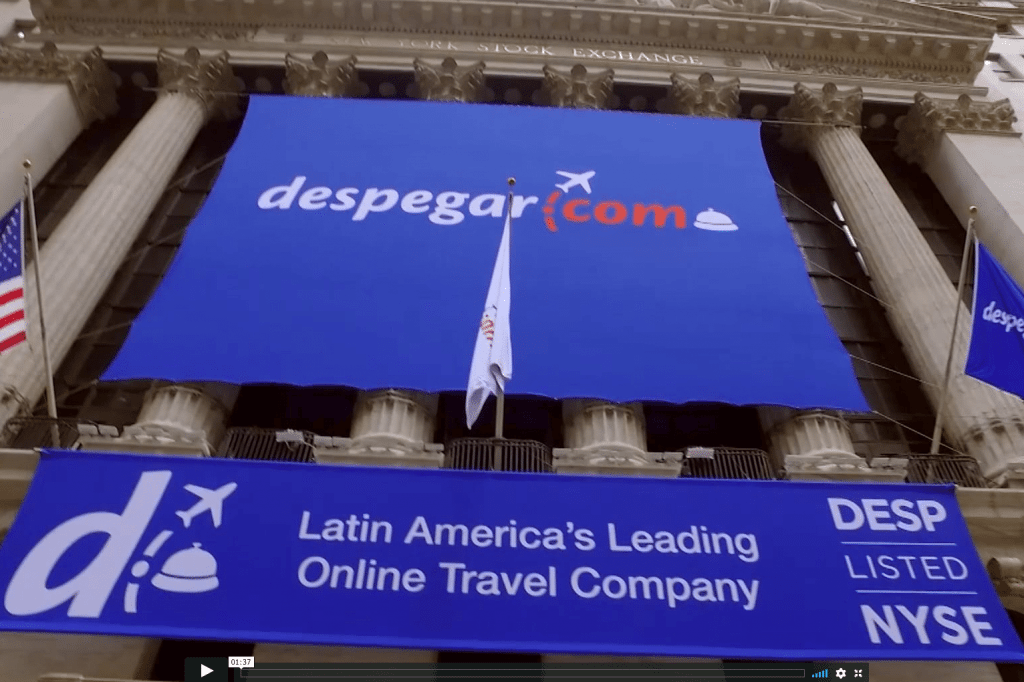Latin America Travel Unicorn Despegar Is Hunting but Could Be Hunted Too

Skift Take
The biggest online travel story in Latin America in 2017 was Despegar's IPO. The Expedia-backed booking site raised $332 million to fund its expansion. The company has hinted that it is likely to use some of the cash to make an acquisition in 2018.
Online travel agency Despegar raised $332 million this year, having listed on the New York stock exchange in September.
Along the way, the Argentine company became Latin America's first unicorn, or start-up worth more than $1 billion, in online travel. As of Friday, the markets placed Despegar's valuation at $1.86 billion.
Despegar said it plans to use the $332 million it raised to fund its expansion.
Rather than pay a dividend to investors, the company's executives said they plan to invest the cash in long-term growth opportunities by spending heavily on its marketing and technology platform.
In November, chief financial officer Mike Doyle told investment analysts on the third-quarter call that his company is "very interested in looking at potential mergers and acquisitions opportunities in the region," though he said at the time that there were no active discussions to report.
Viajanet, Submarino Viagens, Viajala, Voopter, and other companies will be curious to see what moves the regional star makes.
In turn, Expedia has a 14 percent stake in Despegar, and is prohibited from purchasing more than 35 percent of Despegar's shares within three years of the IPO unless Expedia makes a tender offer. Under the latter scenario, Expedia could acquire Despegar if Expedia agreed to purchase more than a 75 pe

